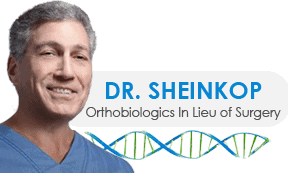Researchers at Hospital for Special Surgery have been awarded a $100,000 grant from the National Football League (NFL) Charities to research the use of platelet-rich plasma (PRP) and stem cells as treatments for tendon injury and degeneration. For years, PRP has been used to improve healing in various sports injuries, but there is little evidence of its efficacy. Tendon overuse injuries are commonly seen in NFL players and recreational athletes, and new treatments are needed.
“We don’t have a treatment that works 100 percent of the time, so there is room for improvement,” said Scott Rodeo, M.D., co-chief of the Sports Medicine and Shoulder Service for Hospital for Special Surgery in New York City. “Many people are weekend warriors and they suffer from tendon overuse injuries. Hopefully, our study will be able to help a lot of these people.” Dr. Rodeo will be heading up the research. He has been associate team physician for the New York Football Giants since 2000.
The results of the research could lead to the development of an effective therapeutic strategy for tendinopathy that may allow NFL players to return to competition more quickly. It may also lead to a decrease in complications related to tendinosis, such as tendon ruptures.
Tendinosis is caused by repetitive microtears in the connective tissue in and around the tendon along with a failure of the body to mount a full healing response. Over time it can lead to pain, reduced tensile strength and chance of tendon rupture.
The grant money will be used to investigate how degenerated tendons respond to PRP and bone marrow-derived stem cells as well as if these two treatments will be synergistic if they are combined. Researchers will test these treatments in a preclinical model of tendon injury and degeneration. Among the goals of the research are to examine the structural and mechanical properties of the treated tendon tissue and to see how it responds to PRP and stem cells.
In recent years, physicians have found that some, but not all, patients with tendon disorders respond to treatment with PRP. PRP contains cells and growth factors that may stimulate healing of bone and soft tissue. Researchers surmise the mixed results may be caused by variations in preparation, timing, dosage and delivery of platelets, or differences in bioactivity. Different PRP preparations contain different amounts of cell and growth factors, and the researchers speculate that the negative studies may have used PRP preparations with low bioactivity.
Similar to PRP, studies using stem cells to treat tendon disorders have also yielded conflicting results. HSS researchers hope their experiments can tease out how this treatment impacts tendons. “Cell therapies such as bone marrow stem cells are attractive because it may provide the necessary stimulus to overcome the unfavorable biologic microenvironment in chronic tendon degeneration,” said Dr. Ma. Stem cells have the capability of differentiating into diverse specialized cell types.
Regenexx has been treating professional, college and amateur athletes as well as weekend warriors with PRP and Bone Marrow Aspirate Concentrate for more than five years. That’s why I am a member of the Regenexx network. Welcome New York to our world of Regenerative Medicine

